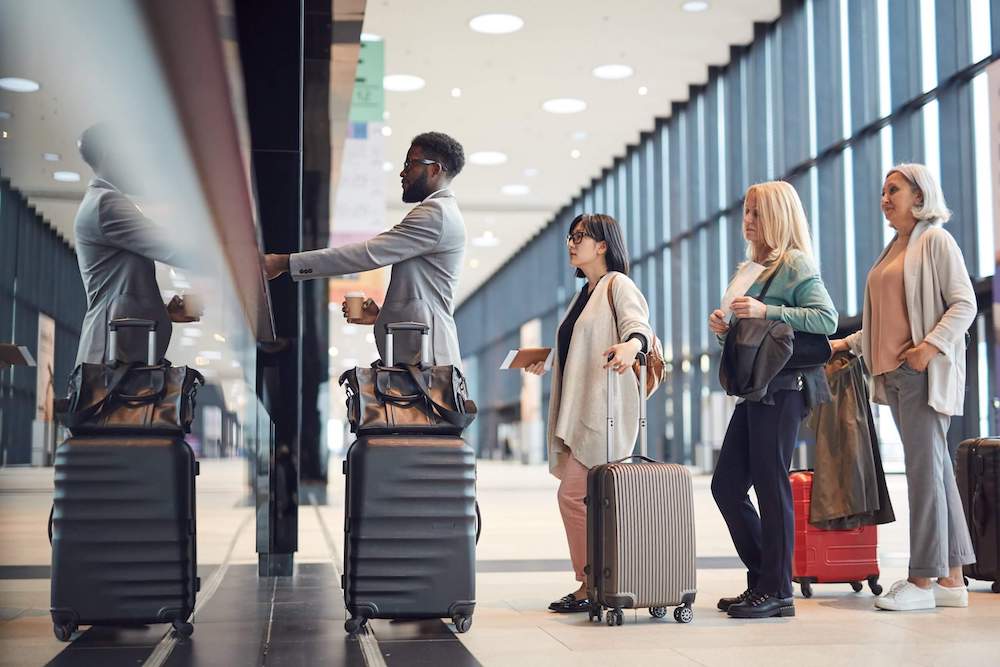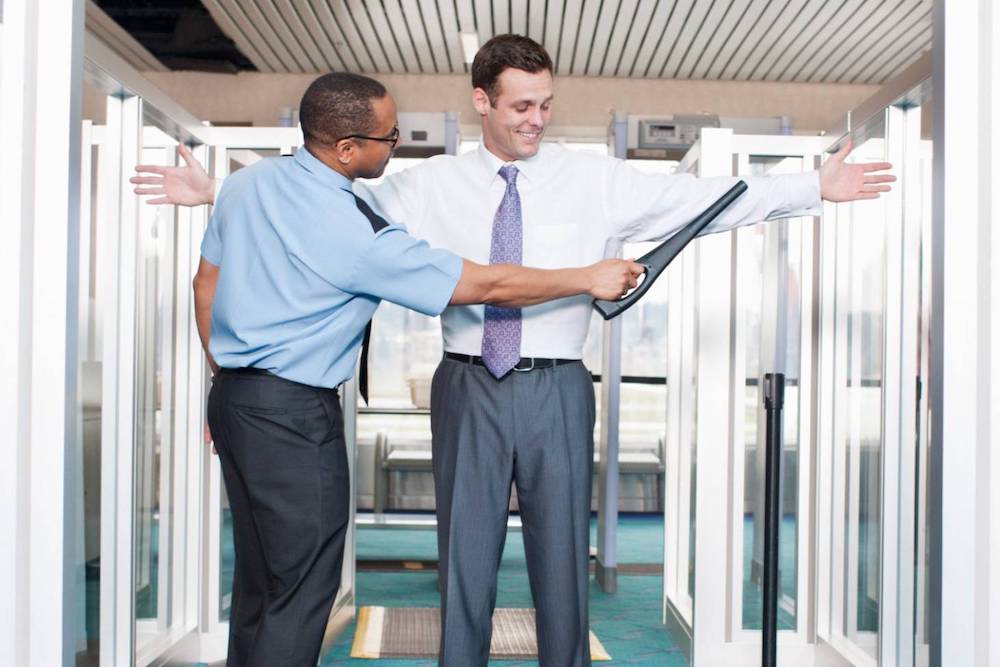
11. A Single Queue Puts Us at Ease
Although the lines for security and check-in may appear impossibly lengthy, a single line actually reduces stress by making people feel more fair. Since there is no other line, nobody is concerned that it is moving more quickly than theirs.
Because everyone is standing in the same line, using a one-queue system for security or check-in, where there is one long line and you proceed directly to the next available counter, is perceived as more equitable by passengers. It’s odd, but true, that you consistently believe the line behind you moves more quickly.

12. The Security Officers Get Conversational
Since 2007, the TSA has invested $200 million annually in personnel who are trained to identify suspect passenger behavior. Paul Ekman, a psychology professor at the University of California Medical School in San Francisco, created the program, which is known as Screening of Passengers by Observation Techniques (SPOT).
It includes a list of 94 symptoms, such as sweating or avoiding eye contact, that indicate worry and terror. However, according to a research, SPOT is useless since “human capacity to effectively identify dishonest conduct based on behavioral cues is the same as or slightly better than chance.”
Passengers can also be screened by just conversing with them. It is 20 times more successful to simply ask open-ended questions, or use the Controlled Cognitive Engagement (CCE) approach, than to try to observe behavior.
An agent may, for instance, ask a passenger where they are going before poking them with a random inquiry, such as where they attended college and what their major was, and then look out for panicky behaviors.
If you’re a frequent traveler, your conversation is simply about what you know best: yourself. It shouldn’t feel like you’re being questioned. According to the research, cops who employed conversation-based screening caught 66% more dishonest passengers than those who used behavior-based screening, which captured only 3% more.








